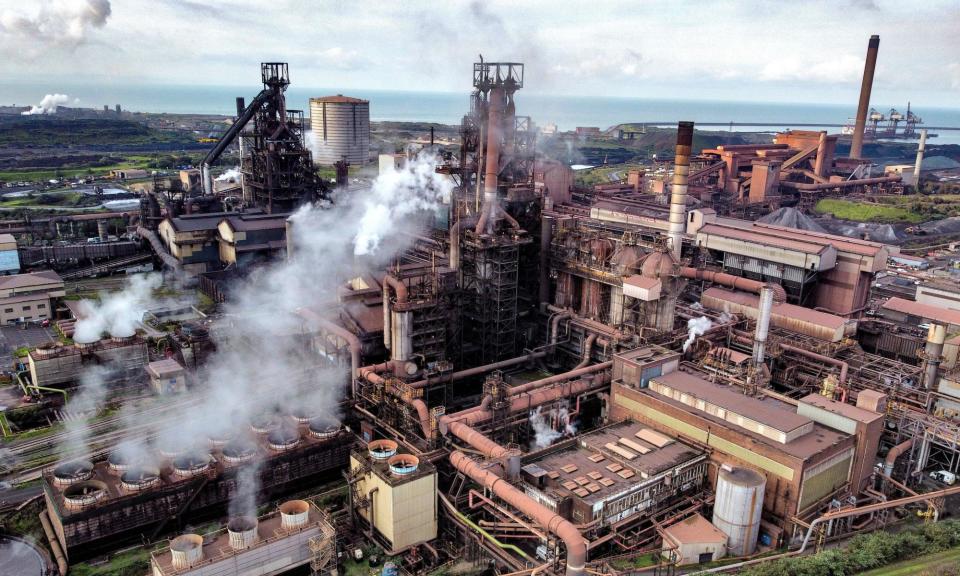Steelworkers to strike over Tata’s plans to cut 2,800 jobs in south Wales

About 1,500 Tata Steel workers at two south Wales steelworks are to begin strike action next month in protest at the company’s plans to cut 2,800 jobs and close its blast furnaces.
The situation has become a general election issue, with Labour calling for Tata to halt its plans and wait until after the 4 July vote to engage in talks with the government, saying there is a “better deal to do”.
The workers based in Port Talbot and Llanwern who are members of the Unite union will begin all-out indefinite strike action on 8 July, the union announced on Friday. It is the first strike action by steelworkers in the UK for more than 40 years, it said, adding that Tata UK’s operations would be severely affected.
Unite said previously it decided to strike after Tata threatened to cut redundancy pay as a response to members voting for an overtime ban. On Tuesday the workers then began the overtime ban and started working to rule, where staff do no more than the minimum required by the rules of their job.
Labour has pledged “a bright future” for UK steel, backed by £3bn funding if it is elected next month. The party has also promised to prioritise emergency talks with Tata.
Tata rejected a trade union plan this year designed to keep Port Talbot’s blast furnaces running, with their closure putting 2,800 jobs at risk and leaving the UK on course to become the only major economy unable to make steel from scratch, Unite said.
The company told workers’ representatives in January that it could no longer afford to continue production at the loss-making Port Talbot plant while it completed a four-year transition plan towards greener production. Tata said operating the old furnaces meant it was losing £1m a day.
Sharon Graham, Unite’s general secretary, said on Friday: “Tata’s workers are not just fighting for their jobs – they are fighting for the future of their communities and the future of steel in Wales.
“Our members will not stand by while this immensely wealthy conglomerate tries to throw Port Talbot and Llanwern on the scrapheap so it can boost its operations abroad. They know south Wales is ideally placed to take advantage of the coming boom in green steel – if the right choices are made.
“The strikes will go on until Tata halts its disastrous plans. Unite is backing Tata’s workers to the hilt in their historic battle to save the Welsh steel industry and give it the bright future it deserves.”
A Tata Steel spokesperson said: “We are extremely disappointed by Unite’s unilateral decision to call strike action.
“Our existing steelmaking assets are near the end of their life, are operationally unstable and causing unsustainable losses of £1m a day. This is why preparations to close the blast furnaces and associated plants in Port Talbot are unchanged. However, if the safety and stability of our operations are put at risk by this action, we will be forced to accelerate those closure plans.
“After extensive negotiations with our unions we substantially improved our support offering for affected employees – the most generous package in our history. Rather than taking strike action, we would have expected Unite to put our improved offer to its members, as previously accepted by all unions, including Unite.”

 Yahoo Finance
Yahoo Finance 